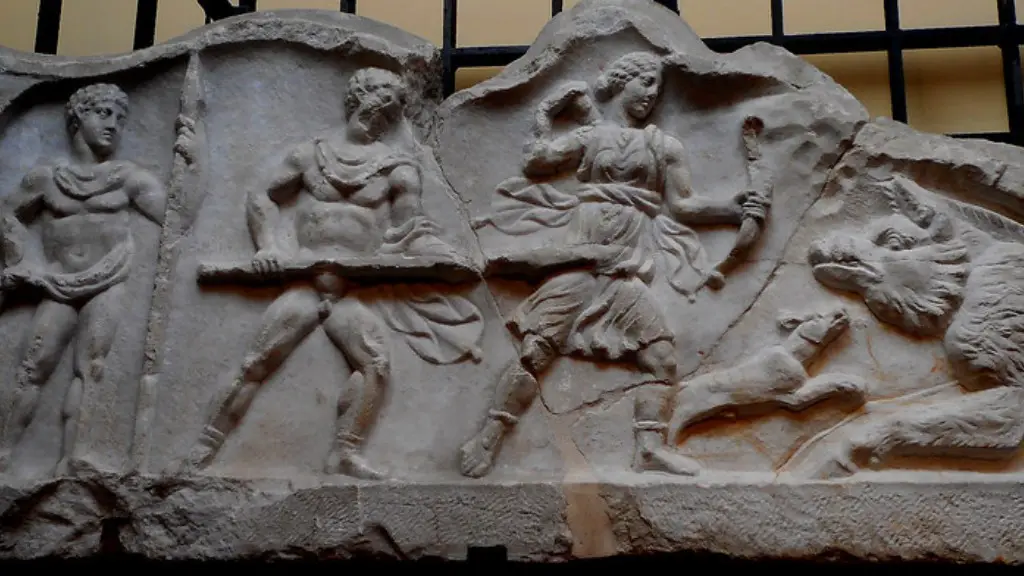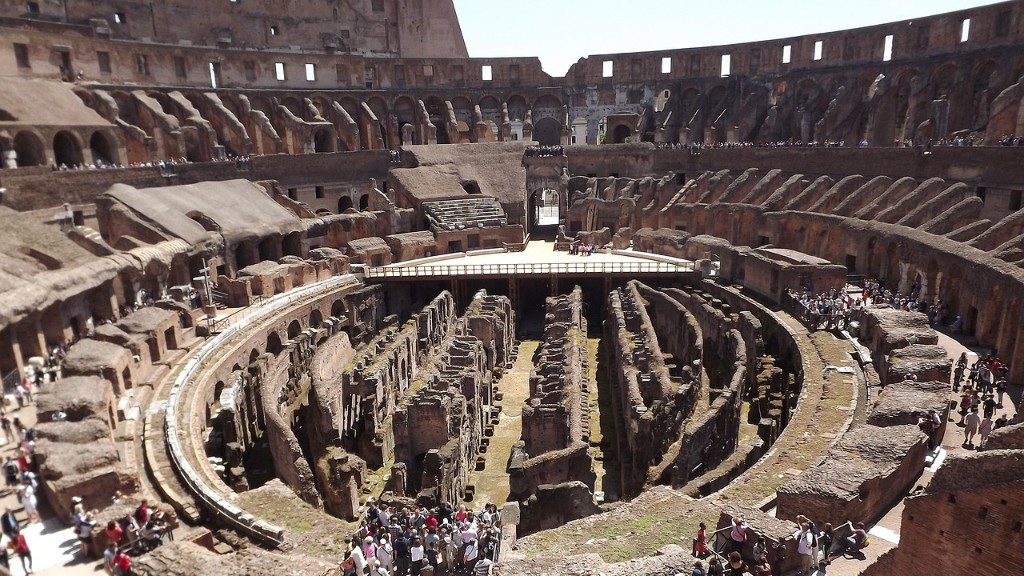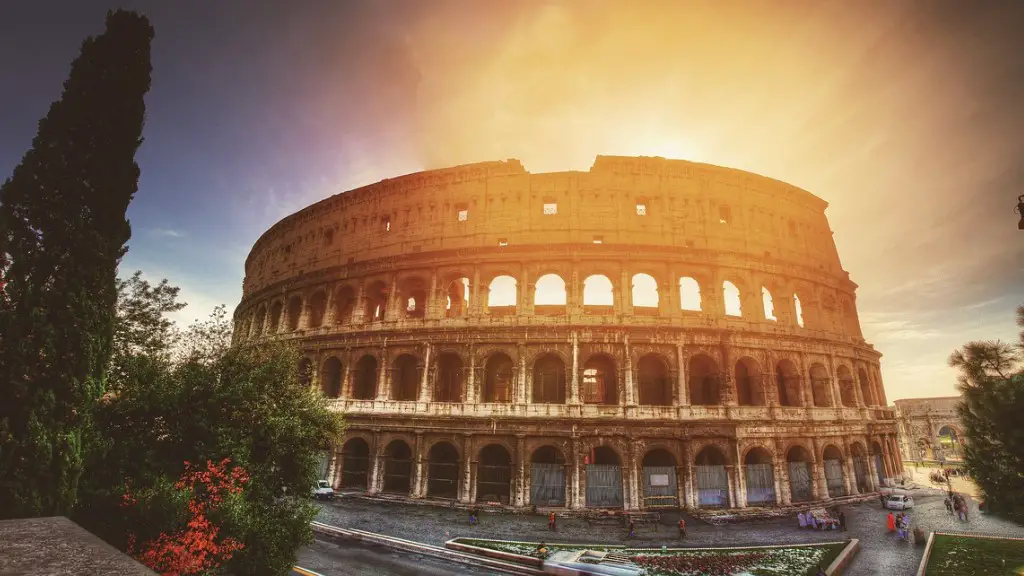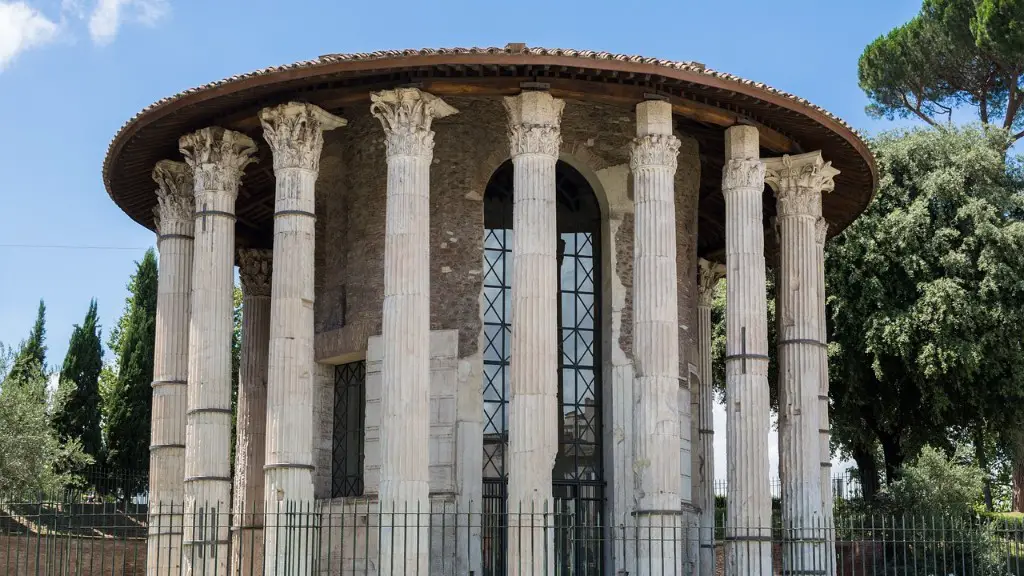The traits left by Ancient Rome, often considered one of the greatest empires in all of history, have had a profound influence on the world we live in today. From language to government and education to engineering, many of the modern day systems we rely upon are rooted in the remarkable legacy of Rome. In particular, the Roman Republic and its associated ideals have had an ever-lasting impact on the development of the western world. The evidence of these influences can be found in many aspects of our social and political structures today.
Law was an important part of the Ancient Roman Republic, and many of the laws established then continue to shape our legal systems today. The Twelve Tables, which codified Roman law in the 5th century BCE, were the basis for later Roman legal development and for many of our modern legal systems. It was during the Roman Empire when law became more complex; with laws to protect the rights of citizens and create a fair system for prosecuting criminal cases. Roman law is still influential today, including in the terminology and structure used in many legal systems.
The Romans were also excellent engineers and had a strong appreciation for mathematics. This knowledge was manifested in their construction of elaborate road systems as well as massive structures such as aqueducts and amphitheatres. Their engineering skills also enabled them to create useful objects such as tools and machines. While some of the technological advancements of the Romans have since been surpassed, many of their structures and designs continue to inspire modern engineering technology.
The Romans also developed a cultural heritage that is still relevant today. Roman politics and philosophy laid a framework for later western political thought, and their literature and mythology provided the basis for later western literature, film and art. Classical Greek was taught in many Roman schools, forming the foundation for Latin and the Romance languages still spoken today in countries like France, Italy and Spain.
The influence of Ancient Rome has also been felt in many aspects of education. Roman schools focused on imparting knowledge and providing a foundation for the practical application of learned skills. Roman teachers focused on developing their students’ abilities to reason and speak in public, which laid the groundwork for the modern public education system. Roman education also encouraged public displays of knowledge, such as public speeches given by students, which helped to cultivate an appreciation for the importance of education.
The influence of Ancient Rome is also visible in the way we organize the principles of our society. The Roman Senate, which served as the main legislative body of the Roman Republic, created the principle of checks and balances with its complex network of laws, elections and vetoes. The prototype for modern democracies, such as the United States, can be traced back to the Roman Republic. Furthermore, the concept of a republic system of government, which guarantees citizens certain rights and freedoms, was first established by the Romans.
The legacy of Ancient Rome is still felt in every aspect of modern life. From language to law, engineering to education, many of the values, institutions and customs we rely upon today are based on the incredible heritage left behind by the Roman Republic. While other civilisations have since surpassed Rome in terms of technological and scientific advancement, the many impacts the Romans left on our world will remain invaluable.
Language
One of the most enduring legacies of Ancient Rome is its language – Latin. Latin is one of the most influential languages of all time, as it has been used to construct numerous words and phrases. From everyday words like compass, angle, and volcano to technical terms such as calculus, centimetre, cellulose, and even our own species’ name ‘homo sapiens’, Latin has had an undeniable impact on our language. Latin has also been an enduring influence in the medical and scientific fields, with many terms still being used in these contexts.
Latin has also been retained in many English words, including ‘portico’, ‘optimist’, ‘soliloquy’, ‘equilibrium’,and ‘sophisticated’, among countless others. Numerous Latin phrases also remain widely used in English, including ‘pax romana’, ‘ad infinitum’ and ‘carpe diem’. Even today, Latin is still seen as a gateway to the study of the classical world, and is a language still widely studied in schools.
Architecture
Architecture was an important area of Roman innovation, and they built monumental structures such as the Colosseum, Pantheon and Trajan’s Forum that remain iconic today. Roman architecture is characterised by the use of arches, vaults and domes, which allowed them to construct larger and more intricate structures. This distinct style still resonates in modern architectures, with the image of the Colosseum often cited as a design inspiration.
More importantly, the adoption of certain techniques and styles developed by the Romans, such as the arch and the concrete, remain integral to modern building techniques today. The Romans developed the art of building with concrete at an astonishing level, and our present-day engineering empires owe much to the Romans for their inventiveness and skill in this area.
Cuisine
The food of Ancient Rome had an impact on the world’s culinary development. Romans were open to borrowing food from different peoples, adapting it to their tastes. From the Middle East, they learned to bake things in dough and used this technique to make pies and pastries. The first pizza, known as ‘placenta’, was a Roman invention made with cheese and honey. Pasta, sauces, and the use of spices like garlic and oregano, also became staples of Roman cooking, and many of these dishes are still eaten today.
The Romans even introduced the process of fermentation to produce wine. They also had a strong appreciation for blending different types of wines, creating a variety of styles and flavours still enjoyed by wine lovers worldwide. Roman cuisine even resulted in the insula, the predecessor of the modern restaurant, where guests were able to purchase prepared food.
Philosophy
The philosophy of the Roman Republic also had a lasting effect on western thought. The writings of Cicero, the first Roman philosopher, which focused on political and religious issues, remain some of the most relevant today. Cicero’s ideas on law, government and natural rights have heavily influenced the works of later philosophers like John Locke, Thomas Hobbes and Immanuel Kant.
The Stoic philosophy of the Roman Republic is also an important part of western thought. It focused on such themes as resilience and perseverance, and encouraged individuals to cultivate an attitude of tranquillity in the face of adversity. This outlook is echoed in many modern concepts, such as mindfulness and resilience, which emphasise the importance of living in the present moment with a positive attitude.



